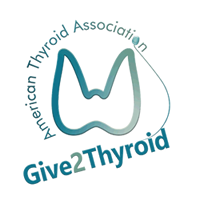SUMMARY OF THE STUDY
This study evaluated 24 premenopausal women who received radioactive iodine following thyroid cancer surgery. The researchers measured blood levels of AMH before radioactive iodine was given and 3, 6, 9, and 12 months after the treatment. After three months, blood levels of AMH were lower than before the RAI treatment. At the end of one year, average AMH blood levels remained low at approximately 32% less than initial levels. The dose of radioactive iodine therapy was not related to the blood AMH levels. However, there were more women age 35 years who had lower AMH levels, compared to those younger than age 35.
WHAT ARE THE IMPLICATIONS OF THIS STUDY?
The findings of this study are relevant to women who receive thyroid cancer treatment. Thyroid cancer occurs over three times more commonly in women than men, and at least a third of women are diagnosed during their childbearing years. The results show that women who receive radioactive iodine therapy for their thyroid cancer have lower blood levels of AMH in the first few months after treatment. Further research is needed to confirm these findings, to see how good of a marker AMH levels are for future fertility, and to evaluate how long the lower AMH levels persist in individuals.
— Angela M. Leung, MD, MSc




